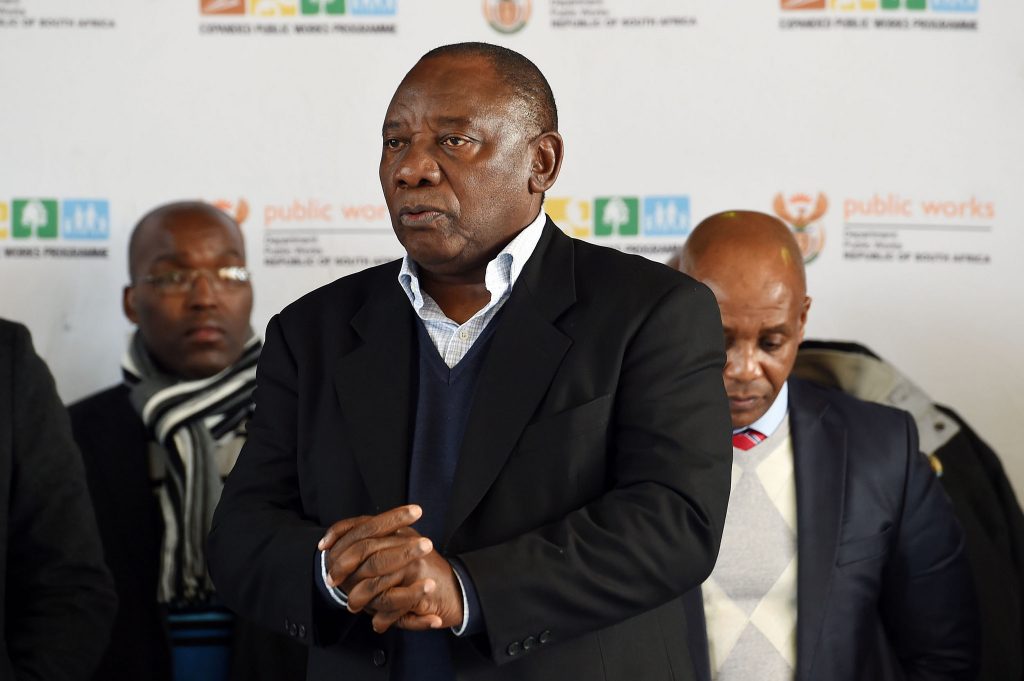President Cyril Ramaphosa has an opportunity to lead from the front and publicly call for the protection of human rights defenders during his State of the Nation Address (SONA), Amnesty International South Africa said ahead of the address on Thursday.
“In the wake of renewed threats against human rights and human rights defenders across the world, it is essential that South Africa plays a leading role in upholding human rights for all, starting at home,” Amnesty International South Africa Executive Director Shenilla Mohamed said.
“Throughout the world, we are seeing a rise in authoritarian practices and ideas, demonstrated by the demonisation of marginalised groups, backlash against gender equality and women’s rights, and the targeting of climate activists, to name a few examples. In this context, it is imperative that states ensure the protection of those who stand up to protect human rights.”
South Africa has a very proud history of human rights defenders, many people who stood up against an oppressive apartheid government and fought for their rights or the rights of others to be recognised and realised by the majority in this country. There have also been many human rights defenders in post-apartheid South Africa, who are standing up for the rights of their communities and are paying a heavy price for doing so.
“Amnesty International South Africa is asking President Ramaphosa to take a moment during his SONA to acknowledge the important work of human rights defenders in our country and abroad, and condemn the threats, attacks, and killings of human rights defenders in our country. His voice, and that of the government, on the matter is important. The simple act of leaders publicly recognising the importance of human rights defenders contributes to lowering the risks that they face,” Shenilla Mohamed said.
“We recall a time when the president himself was a young human rights defender, threatened and imprisoned for fighting the brutal apartheid regime, and so we call on him to champion the protection of human rights defenders, to ensure that no other activist has to endure the horrors that he faced.”
The need for legislation
Amnesty International South Africa is further urging the state to develop and adopt domestic legislation for the protection of human rights defenders in the country, to ensure that systems are put in place to deal with the specific challenges faced by human rights defenders. States, including South Africa, have an obligation under international law to support and protect human rights defenders, protect the right to life, and to ensure access to justice when rights have been violated. The South African government has also accepted recommendations to ensure the protection of human rights defenders, including through legislation, during the fourth cycle of its Universal Periodic Review.
South Africa has an opportunity to be a leader in the international community and in the region in the advancement of protections for human rights defenders.
A human rights defender is anyone who, individually or in association with others, acts to defend and/or promote human rights at a local, national, regional or international level. They come from all walks of life. They can be journalists, lawyers, healthcare professionals, teachers, trade unionists, whistleblowers, victims or relatives of victims of human rights violations and abuses, or members of human rights organisations.
Human rights defenders’ activities may be part of their profession or undertaken voluntarily and unpaid; they may be organised and on a regular basis, or could simply be an action to stand up for human rights.
Human rights defenders in South Africa are active across various sectors, advocating for quality education, demanding essential services for marginalised communities, and confronting environmental threats intensified by industries like mining. Their fight extends across a broad spectrum of human rights issues, often at great personal risk.
Justice for those killed
In South Africa, human rights defenders like the Abahlali baseMjondolo movement, Nonhle Mbuthuma of the Amadiba Crisis Committee, and many others, put their lives at risk to stand up for human rights. The threats, attacks and killings of human rights defenders often continue with impunity, as in the case of Fikile Ntshangase, an environmental human rights defender who was shot six times inside her home in October 2020 following threats against her life. She was a vocal opponent of the expansion of mining activities in her community. No one has been held accountable for her killing.
Abahlali baseMjondolo is a movement of 150,000 people living in informal settlements across the country, fighting for land, housing, and dignity. Abahlali baseMjondolo have counted 25 of their members as having been killed since 2009, with eight of these in the eKhenana commune in Durban, Kwa-Zulu Natal. Amnesty International South Africa’s research found that of the eight people killed in eKhenana between 2018 and 2022, at least five were killed because of their activism. Three of these alone happened in 2022, and there has only been one conviction.
“The state has a duty to protect these individuals, guarantee their safety, and, when they are threatened, harassed, or murdered, ensure that the justice system swiftly holds perpetrators accountable. The lack of consequences for those who target human rights defenders emboldens further violence,” Shenilla Mohamed said.
Background
President Cyril Ramaphosa will deliver his 2025 State of the Nation Address on Thursday, 6 February in Cape Town.
Amnesty International South Africa has been campaigning for the protection of human rights defenders and calling for the development of human rights defender legislation.
Stand with the brave and call for the development of human rights defender legislation here.
For more information or to request an interview, please contact:
Genevieve Quintal, Media and Communications Officer, Amnesty International South Africa: +27 (0)64 890 9224; genevieve.quintal@amnesty.org.za


